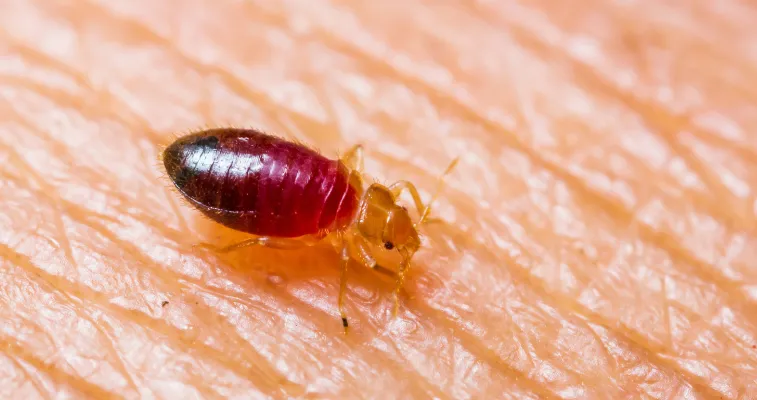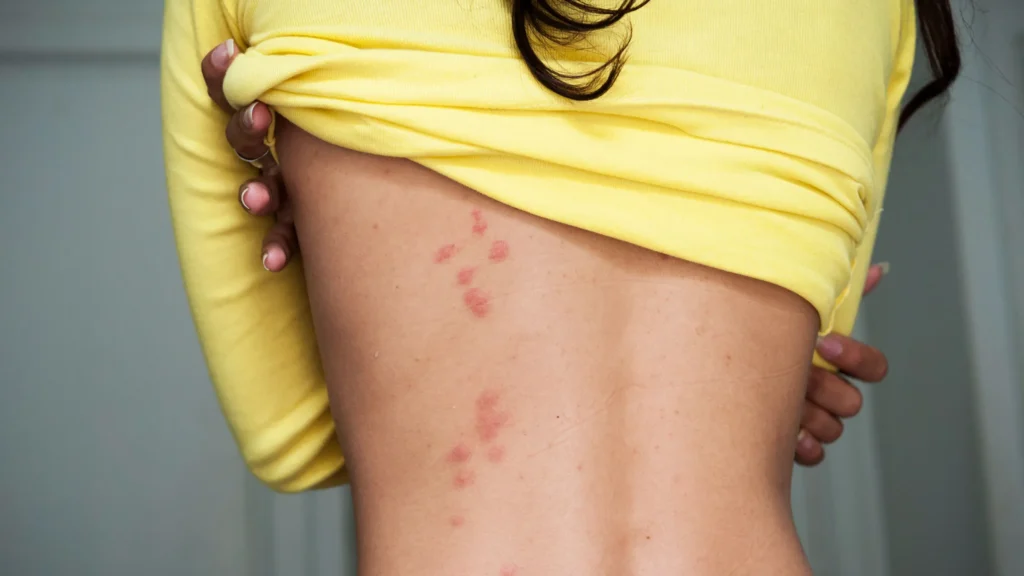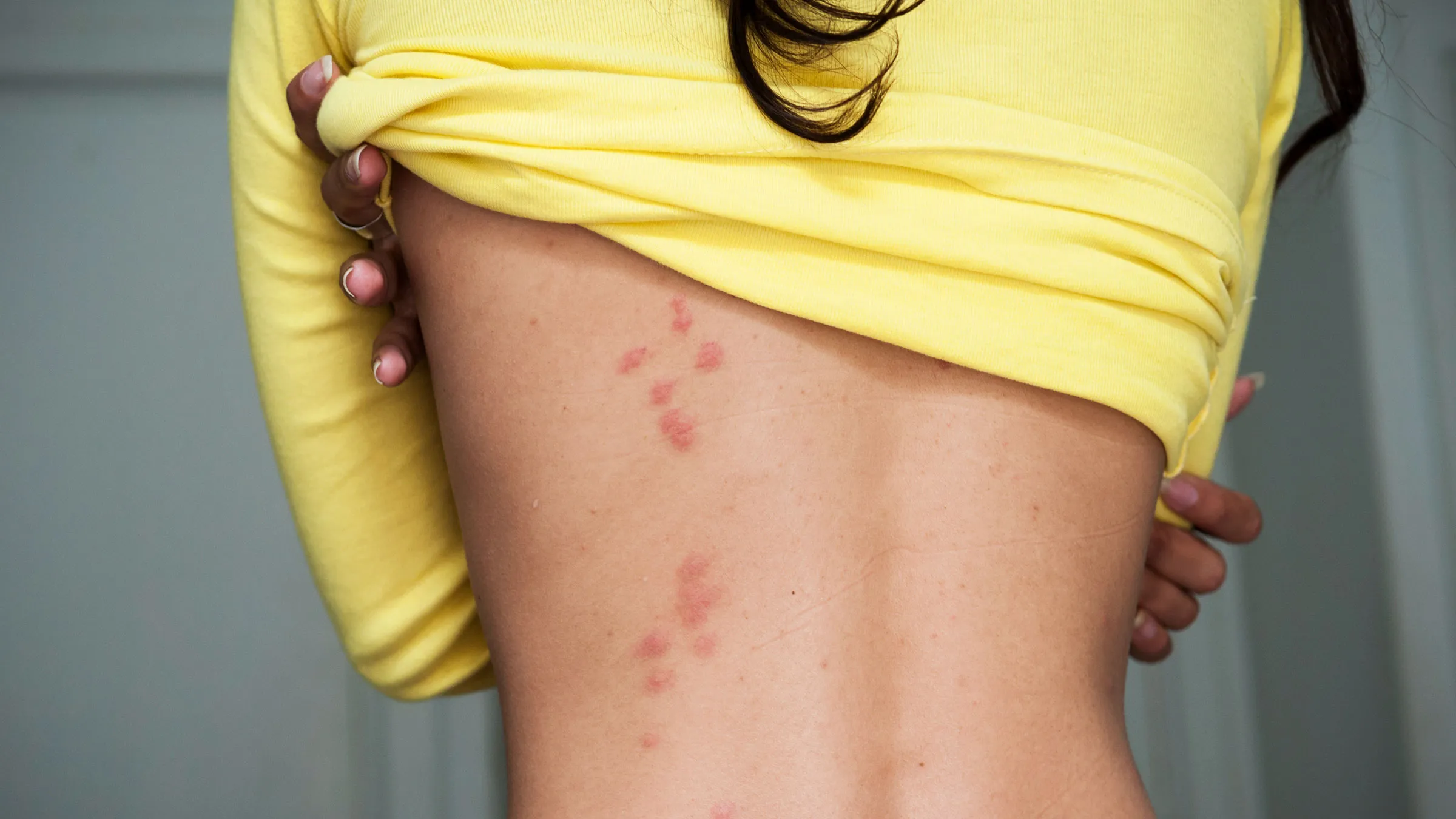Bed bugs can be a nuisance, causing discomfort and irritation with their bites. If you’re dealing with a bed bug infestation or want to prevent bites while traveling, you might be wondering what you can put on your body to keep these pesky insects at bay. In this article, we’ll explore various methods and products to help you avoid bed bug bites effectively.
Table of Contents
ToggleUnderstanding Bed Bug Bites
Before diving into prevention methods, it’s essential to understand bed bug bites. Bed bugs typically feed on human blood during the night, leaving behind itchy, red welts on the skin. While their bites are not known to transmit diseases, they can cause discomfort and sleep disturbances.
Preventing Bed Bug Bites
There are several strategies you can employ to prevent bed bug bites effectively. These include:
- Use Bed Bug Repellents:
- There are various bed bug repellents available in the market, including sprays, lotions, and powders. Look for products containing ingredients like DEET, picaridin, or essential oils such as lavender, peppermint, or tea tree oil.
- Apply repellents to exposed skin before sleeping or spending time in areas where bed bugs may be present.
- Wear Protective Clothing:
- Wear long-sleeved shirts, long pants, and socks to cover as much skin as possible, minimizing the areas where bed bugs can bite.
- Tuck your pants into your socks to create a barrier that bed bugs cannot easily penetrate.
- Use Bed Bug-Proof Bedding:
- Invest in bed bug-proof mattress encasements and pillow covers to prevent bed bugs from infesting your bedding.
- Regularly inspect and clean your bedding to detect and eliminate any bed bugs or their eggs.
- Avoid Infested Areas:
- When traveling, research accommodations beforehand to ensure they have a good reputation for cleanliness and bed bug prevention.
- Inspect hotel rooms for signs of bed bugs, such as dark spots on bedding or mattress seams, before unpacking.
Products for Preventing Bed Bug Bites
Here’s a comparison table of various products you can use to prevent bed bug bites:
| Product Type | Pros | Cons |
|---|---|---|
| Bed Bug Repellents | – Easy to apply | – May have a strong scent |
| – Prevents bed bugs from infesting mattresses and pillows | – Some people may be sensitive to certain ingredients | |
| Protective Clothing | – Creates a physical barrier between skin and bed bugs | – May not be suitable for warm climates |
| – Can be worn comfortably during sleep or travel | – Requires washing after each use | |
| Bed Bug-Proof Bedding | – Prevents bed bugs from infesting mattress and pillows | – Initial investment cost may be high |
| – Provides long-term protection | – Requires regular maintenance and cleaning |

What Will Keep Bed Bugs from Biting Me?
To prevent bed bugs from biting you, you can take several measures:
- Use bed bug repellents: Apply repellents containing DEET, picaridin, or essential oils like lavender, peppermint, or tea tree oil to your skin before sleeping or spending time in areas where bed bugs may be present.
- Wear protective clothing: Cover as much skin as possible with long-sleeved shirts, long pants, and socks, and tuck your pants into your socks to create a barrier against bed bug bites.
- Use bedbug-proof bedding: Invest in mattress encasements and pillow covers designed to prevent bed bugs from infesting your bedding.
- Avoid infested areas: When traveling, research accommodations for cleanliness and inspect hotel rooms for signs of bed bugs before unpacking.
What Scent Keeps Bed Bugs Away?
Several scents are believed to repel bed bugs, including:
- Lavender
- Peppermint
- Tea tree oil
Using essential oils with these scents in repellents or as part of a homemade solution may help deter bed bugs from biting.
Is There Anything I Can Put on My Skin to Repel Bed Bugs?
Yes, you can apply bed bug repellents containing ingredients like DEET, picaridin, or essential oils to your skin to repel bed bugs. These repellents create a barrier that discourages bed bugs from biting.
Will Vaseline Stop Bed Bugs?
While Vaseline (petroleum jelly) is thick and sticky, it is not an effective method for preventing bed bug bites. Bed bugs can still navigate around Vaseline to reach exposed skin, so it’s better to use proven repellents and protective clothing to deter bed bugs.
Frequently Asked Questions (FAQs)
- Do bed bug repellents work?
- Yes, bed bug repellents containing effective ingredients can help deter bed bugs from biting.
- Can I make my bed bug repellent at home?
- While there are DIY recipes for natural repellents, their effectiveness may vary, and it’s essential to research ingredients thoroughly.
- How often should I apply bed bug repellent?
- Follow the instructions on the product label, but generally, reapply every few hours for continuous protection.
- Are there any natural remedies for preventing bed bug bites?
- Essential oils like lavender, tea tree, and peppermint are believed to have repellent properties, but their effectiveness against bed bugs is not scientifically proven.
- Can I use insect repellent meant for mosquitoes against bed bugs?
- Some mosquito repellents may also repel bed bugs, but it’s best to use products specifically formulated for bed bug prevention.
- Should I use repellents on children?
- Consult with a pediatrician before using any repellents on children, especially those under two years old.
- Do bed bug-proof encasements work?
- Yes, bed bug-proof encasements can effectively prevent bed bugs from infesting your mattress and pillows.
- How do I know if a product is safe for use on my skin?
- Look for products approved by regulatory agencies like the Environmental Protection Agency (EPA) for safety and efficacy.
- Can I use multiple prevention methods simultaneously?
- Yes, combining multiple prevention methods, such as repellents, protective clothing, and bed bug-proof bedding, can enhance your protection against bed bug bites.
- Are there any non-chemical methods for preventing bed bug bites?
- Yes, maintaining cleanliness, regularly vacuuming and inspecting your living space, and avoiding bringing used furniture into your home can help prevent bed bug infestations.

Conclusion
Protecting yourself from bed bug bites requires a multi-faceted approach, including the use of repellents, protective clothing, and bed bug-proof bedding. By incorporating these preventive measures into your daily routine, you can reduce the risk of bed bug bites and enjoy a more restful sleep, whether at home or while traveling. Remember to follow product instructions carefully and consult with a professional if you have concerns about bed bug infestations in your living space.








